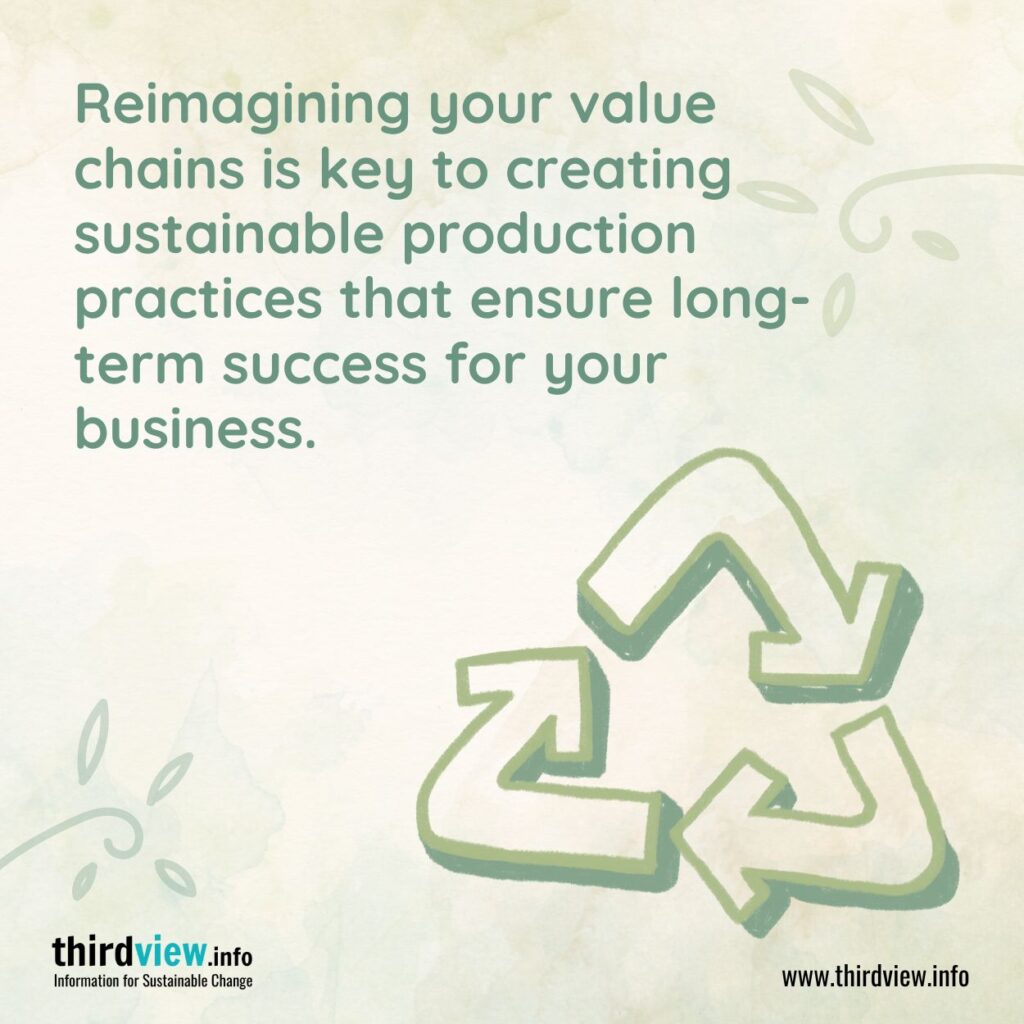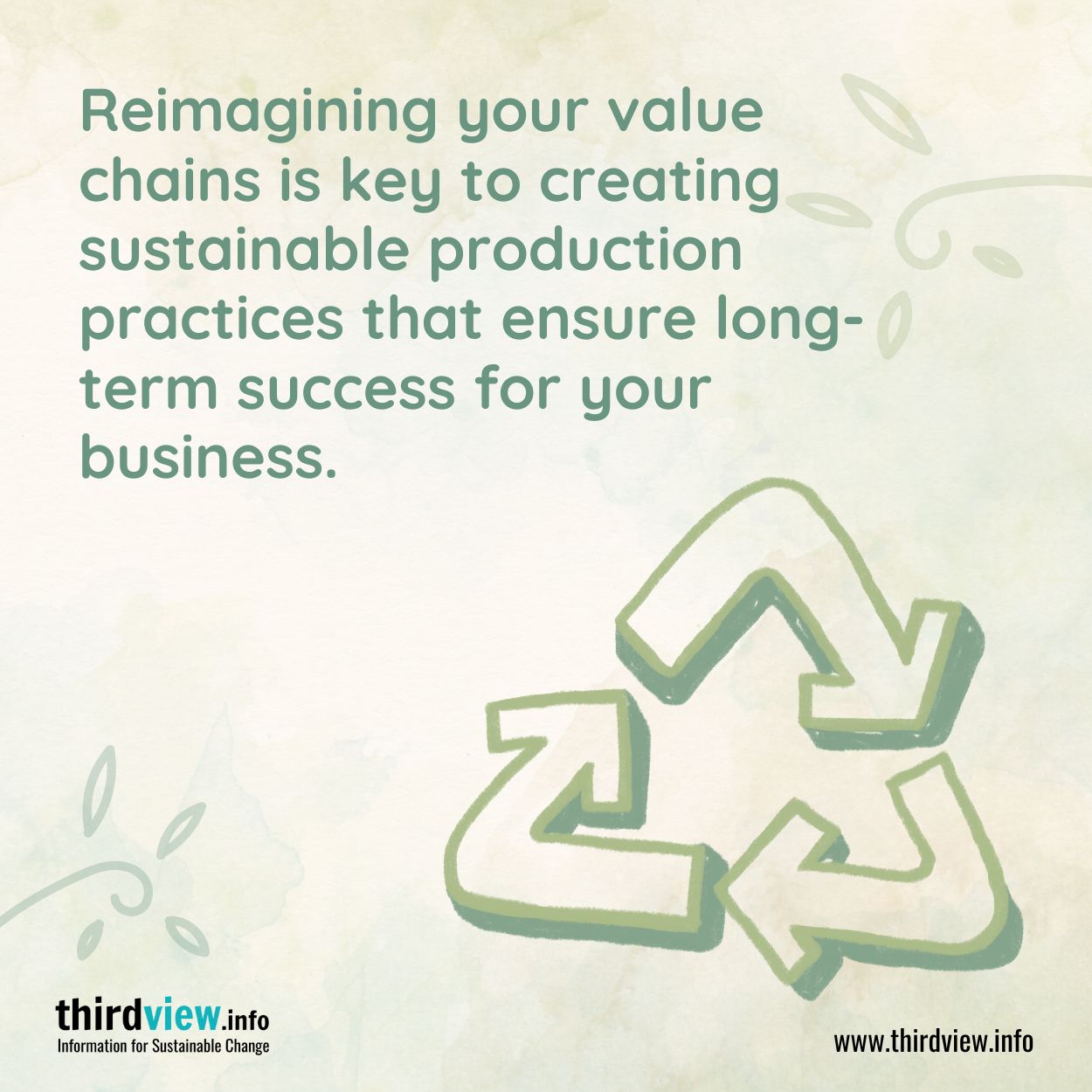In an increasingly competitive global market, companies are constantly looking for ways to reduce costs while staying ahead of the competition. However, in order to remain sustainable, companies must take into account the full lifecycle of their products and services. The value chain is an important tool for doing this, as it can help companies better understand where and how they can create economic value sustainably. In this blog post, we’ll explore how companies can use a reimagined value chain to support more sustainable production practices.
What is a reimagined value chain?
A reimagined value chain considers the full lifecycle of a product or service from its raw material sourcing to its eventual disposal. It also takes into account any externalities associated with the production process, such as environmental impacts or social costs. By taking all these factors into account, a company can better understand the true cost of production and identify areas where they can reduce waste and increase efficiency.
For example, let’s say a company produces shoes and wants to examine its production process from start to finish. In order to do so effectively, they could look at each step in their value chain—from sourcing materials and manufacturing components to designing the shoes, shipping them out to stores or customers, promoting them through marketing activities, dealing with customer feedback and returns, right up until finally disposing of any excess materials or products that don’t sell. Each step offers an opportunity for improvement—be it reducing energy consumption during manufacturing or boosting marketing efforts online—and helps the company make informed decisions about how best to optimize its production process for sustainability.
The Benefits of Reimagining Value Chains
Reimagining your value chain offers numerous benefits beyond just environmental sustainability; it can also be used as a tool for achieving operational excellence by helping you become more efficient and productive while reducing costs. By examining each step in your value chain closely you are able to identify areas where you could potentially save money by streamlining processes or eliminating unnecessary steps altogether. Additionally, it allows you to identify potential opportunities for growth that would otherwise have gone unnoticed without taking into account the full lifecycle of your product or service.
Reimagining your value chains is an important step towards creating sustainable production practices that will help ensure long-term success for your business. By understanding every aspect of your production process from start to finish you are able to identify areas that require improvement and set yourself up for continued growth in an ever-evolving marketplace. Taking control of your entire supply chain is key – not only does it allow you to support more responsible practices, but it also gives you insight into potential opportunities that would otherwise have gone unnoticed without careful consideration of all aspects involved in product creation and distribution.


